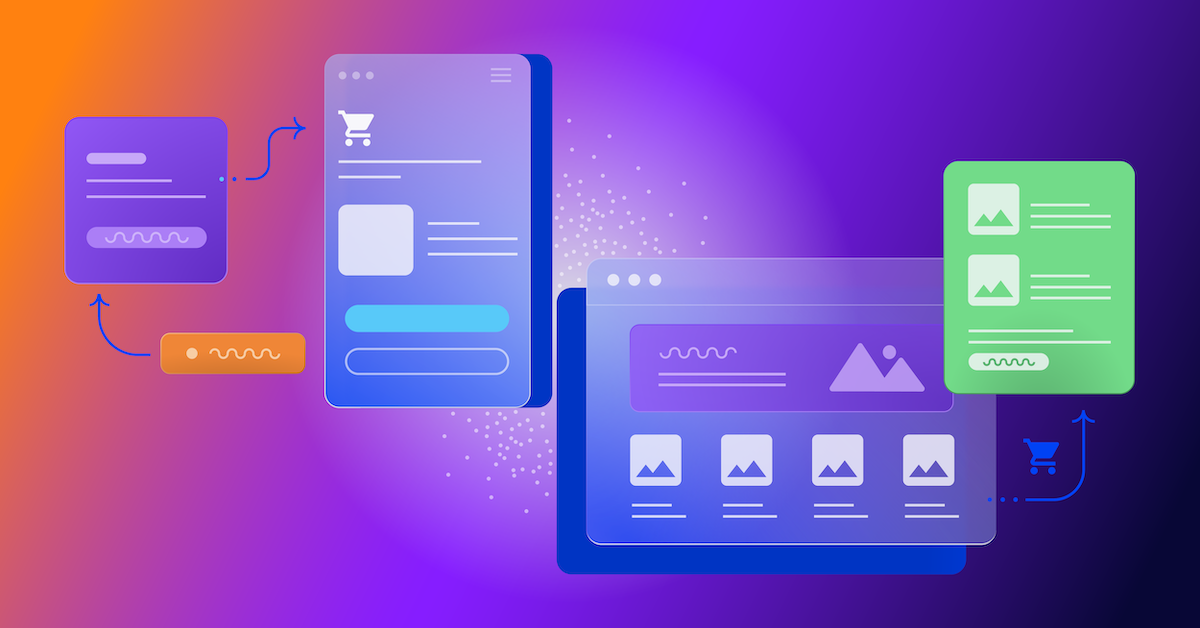Rising up in the face of Coronavirus - how Episerver customers are responding
As the number of confirmed COVID-19 cases climbs to more than 3.2 million worldwide, businesses across the globe are suffering from short and long term impacts. Devastating effects are being realized by the hospitality, sporting, events and airline industries, to name a few.

Morgan Short
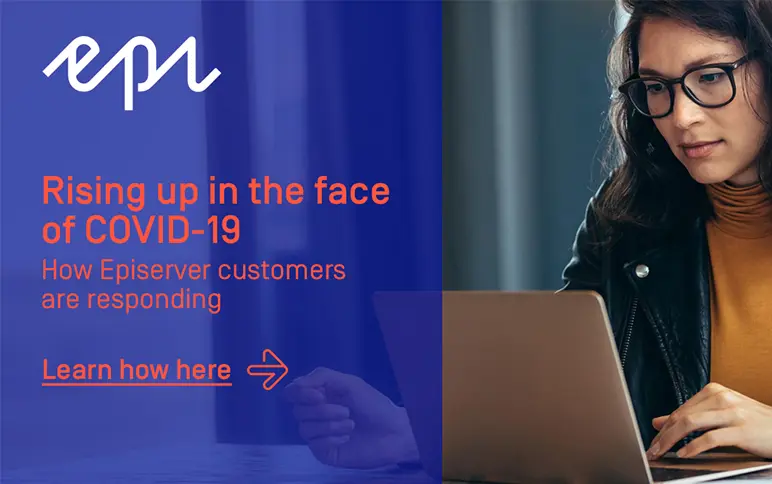
In the face of tribulation, forward-thinking companies are rising up to the challenge and adapting to the situation. Episerver has the privilege of empowering growing and established brands to compete on digital. With a birds-eye-view on how industries are adapting to find ways to best serve their customers, we ask what impact COVID-19 is having today, and what it means for operations tomorrow.
In December 2019, Episerver acquired Insite Software, adding hundreds of manufacturing and distribution companies to our roster of customers. Julian Dawkins, Senior Product Marketing Manager at Episerver, had the opportunity to catch up with Morgan Short, originally from the Insite Software marketing team and now on Episerver's product marketing team, to touch base on what they’ve been seeing across the globe.
The pair discuss the innovative ways customers have been dealing with the current environment and unpack the lessons companies can take with them into the future.
Julian: Good afternoon from London, Morgan!
Morgan: And good morning to you from Minneapolis, Julian! How’s it going?
Julian: All good, thanks. Listen, let me pick your brain. It’s become clear that in order for organizations to endure the current situation, digital has to be at the forefront of their response. Tell me, what are some of the insights you’ve learned on your side of the pond? What trends are you seeing?
Morgan: You’re absolutely right about digital. Even in the manufacturing and distribution industries where businesses are built on deeply-rooted relationships, we’re seeing a huge reliance on digital right now. From day one, manufacturers and distributors have been relentlessly committed to serving their customers through anything. In order to best do that in today’s world, digital is the answer. Companies like Source Atlantic, Consolidated Supply, George T Sanders and Behler-Young are leveraging their ecommerce websites and mobile apps to enable customers to continue doing business with them.
We recently sent out a COVID-19 impact survey to InsiteCommerce customers. Eighty-five percent of them responded either “Sunny” or “Partially Sunny” on their company’s ability to serve their customers over the last 30 days. Many of them attributed this success to their ecommerce website.
Julian: Agreed, it’s something every sector needs to embody. Being a historic event, people will ask: how did you react to Covid? What was your response?
’Pre/post-Covid’ will be a common placemarker. It's a great indicator of an organization’s digital preparedness and their ability to pivot.
Let’s talk about that. What was business like before for Insite customers? And how are things different today?
Morgan: Digitally speaking, I would argue that the B2B world is maybe 10 years behind where retail is today. However, what happens in our personal shopping lives impacts our expectations in B2B. The problem is that many B2B companies are failing to meet their customers’ needs online. So a lot of manufacturers and distributors were working on building those Amazon-like experiences before COVID struck.
Manufacturers and distributors were already working on innovating, but COVID has been a catalyst to ramp innovations up even faster. Reliance on digital and ecommerce is huge, but there are some other changes as well.
Take order pickup for example. Because of necessity, many companies are moving to drive-up only or curbside pickup models, while encouraging customers to order online. They’re also swiftly incorporating order status text and email alerts.
Actually, because of COVID-19, Distributor Corporation of New England sped up their rollout of pickup lockers. They already had pickup lockers slated for this quarter, but they were able to swiftly deploy the lockers so customers didn’t have to walk into their locations.
Another big change is obviously events and trainings. Many, if not all events for our customers have been canceled, which is often a big lead generation opportunity. Trainings are also being canceled or moved online. Companies are relying on creativity and innovation to offer alternative virtual events and find other ways to produce leads.
What are you seeing, Julian?
Julian: Well, just like you, we’re seeing customers rely heavily on their digital environments. They’ve been figuring out how to best support their customers by deploying stategies that harbour confidence, not only in their products and services, but in the values they represent. The prevailing message is that online engagement takes precedence because digital is the new physical handshake.
Both our ecommerce and non-ecommerce customers are delivering more informative, timely content on site pages. The Episerver Customer-Centric Digital Experience Platform (DXP) has seen a 30 percent surge in site traffic since the outbreak vs the same period in 2019 (not including new bookings).
Morgan: Sometimes necessity is the mother of invention. How would you say customers are leveraging Episerver products in this time? What tactics are being used across the various industries Episerver serves?
Julian: So, take online sellers within retail, for example. There have been a host of companies who have been offering massive discounts in order to maintain cashflow. However, haemorrhaging pricing for short term survival isn’t the end game for Swedish fashion house, Filippa K. In the middle of the Covid crisis, Filippa K would rather build a non-discounted, circular clothing economy. It's proved popular, not only in the industry, but with consumers. When everyone's talking about discounts, they’re not. They’ve created a differentiated marketplace proposition. Mikael Björklund, Chief Operating Officer at Filippa K, has seen a 30 percent increase in pageviews since the outbreak. He and his team leverage the Episerver progressive web app (PWA) to showcase seasonless fashion. For Filippa K, Covid-19 isn’t chaos, instead it’s a chance to show quality items that are long lasting, sustainable and recyclable to a more captive audience.
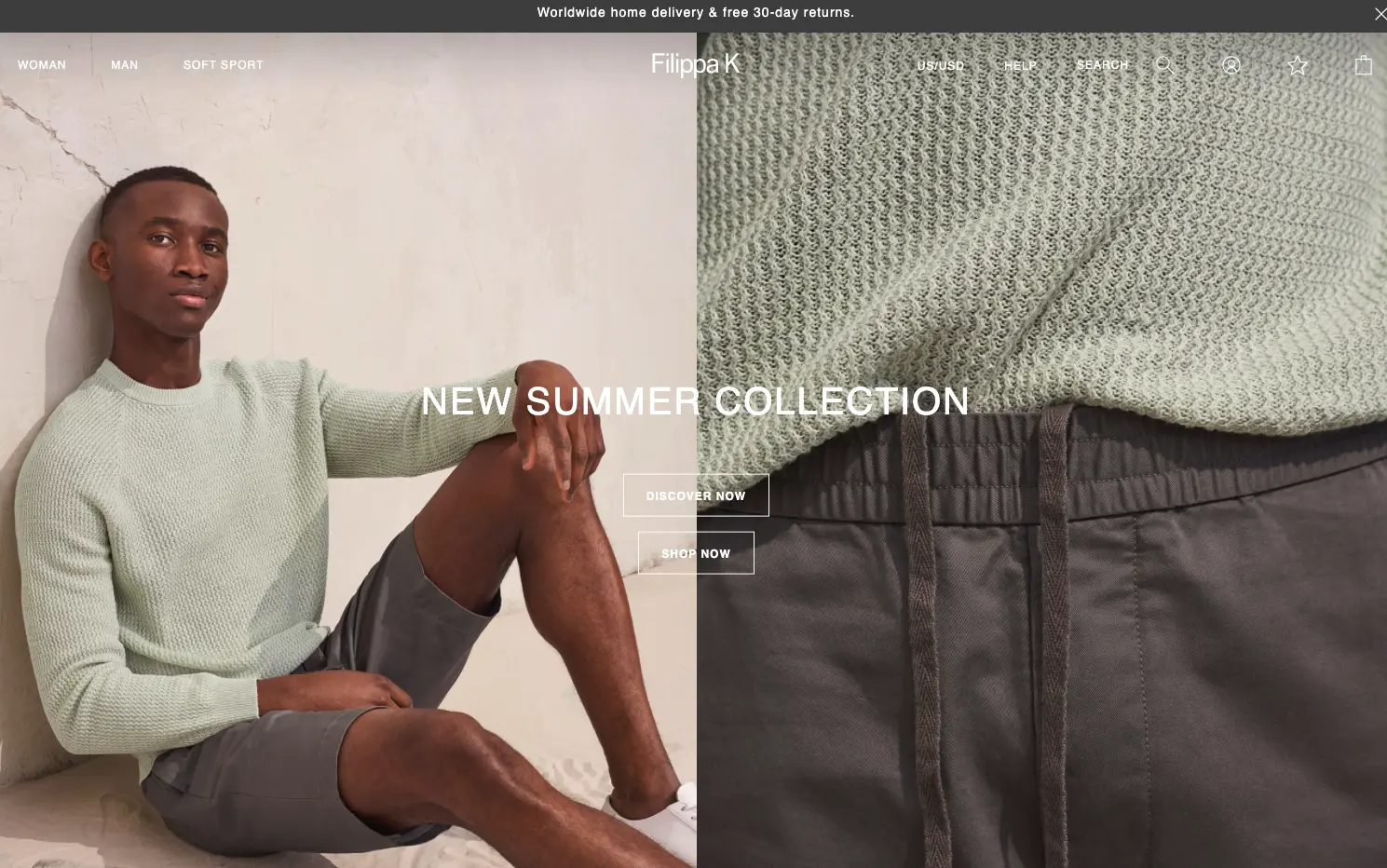
Food distributors, in a proactive effort to facilitate new direct-to-consumer channels, have reduced minimum order quantities. This is enabling families to click-and-collect items that were orginally intended for resturarants and pubs. Online accounts are now quicker and easier to setup and in some cases, customers don’t even need to login to place an order.
With physical hardware shops closed and consumer DIY stores struggling with online demand, savvy consumers are turning directly to distributors and manufacturers for goods. In response, we’re seeing customers personalize their Search & Navigation functionality. Business customers commonly search by known part number, whereas consumers don’t. We are supporting organizations as they upgrade existing search functionality to account for spelling mistakes, alternative wording and product descriptions. We’ve spotted a trend in products being broken up into catalog categories. Episerver personalization tools including Content and Product Recommendations, are being installed at a faster pace than ever - days instead of weeks - to personalize buying-journeys for users.
We’re seeing customers use the power of the Episerver DXP to deliver a more engaging branch of their services and products. For example, Becker’s School Supplies who sells quality educational supplies online, have been hosting webinars for children to support parents who are home-schooling. Toyota New Zealand is accelerating their digital projects on Episerver, including building a portal for fleet buyers to easily manage dispatches with a reduced workforce. Monterey Bay Aquarium over in California may be closed, but they’re still entertaining visitors by shifting to virtual aquarium tours.
Companies are stepping up to provide impactful digital outcomes. Have you seen any examples of that?
Morgan: Oh yeah, absolutely. I think a lot of companies are pivoting their messaging and value propositions right now. These are tough times for everyone, and I think most companies are just trying to determine how they can help. Whether that be through offering educational content, helpful online resources or new products and services all together.
Hisco is one example that comes to mind for me. If you navigate to their website, you’ll see that they are heavily promoting personal protective equipment and other COVID-19 related products. This kind of agility is what impresses me. They’re able to leverage built-in B2B functionality within Episerver’s InsiteCommerce to keep their ecommerce website up-to-date on inventory availability, pricing and more.
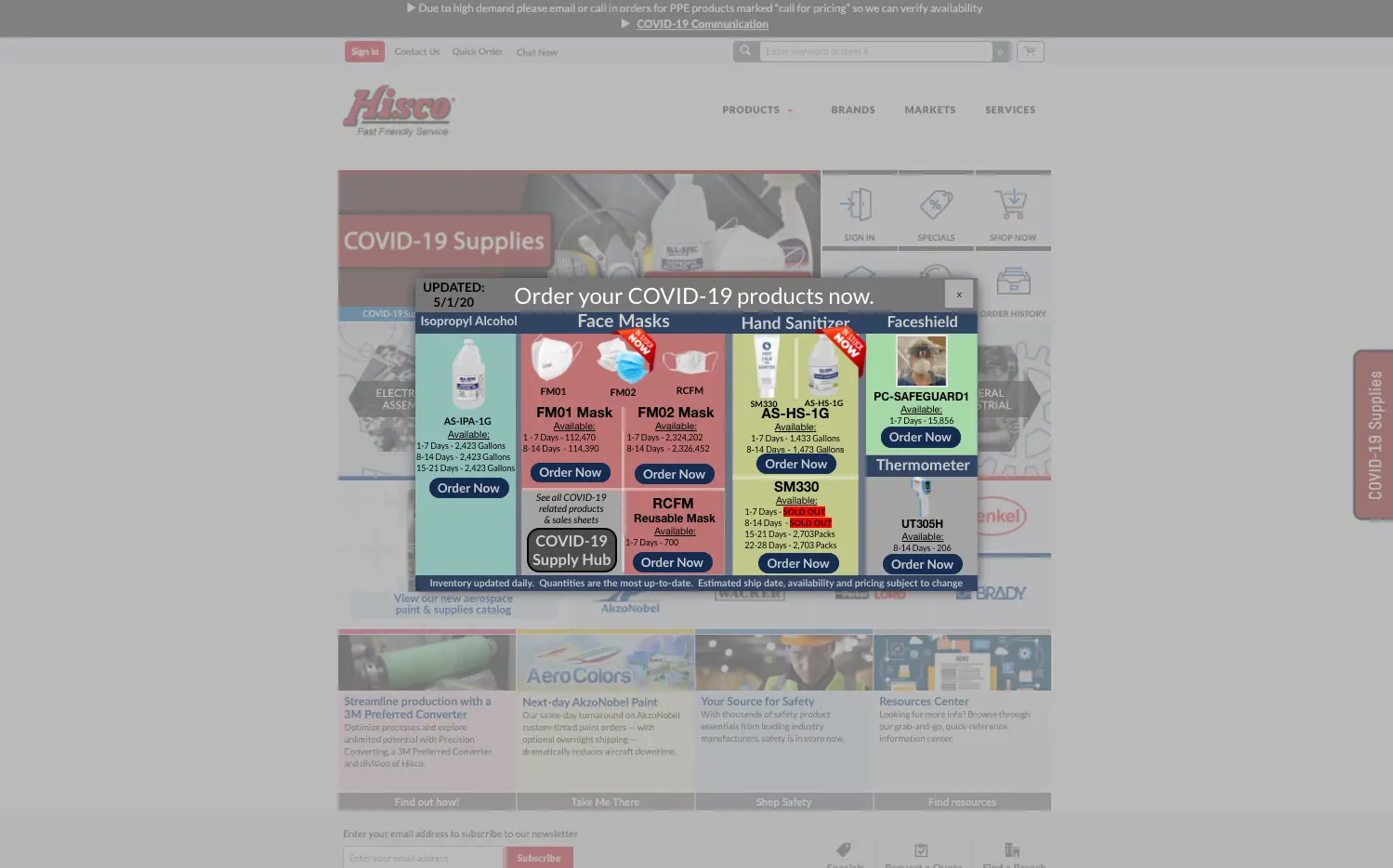
Schilling Supply, a wholesale distributor of janitorial, paper and packaging products is another company that comes to mind. They have been paying close attention to their site analytics. Leveraging InsiteAnalytics for eCommerce, they noticed an uptick in searches for products like hand sanitizer, Purell, Clorox wipes, Lysol and other COVID related products. They’ve seen a larger amount of will calls and they’ve seen average individuals coming to order products.
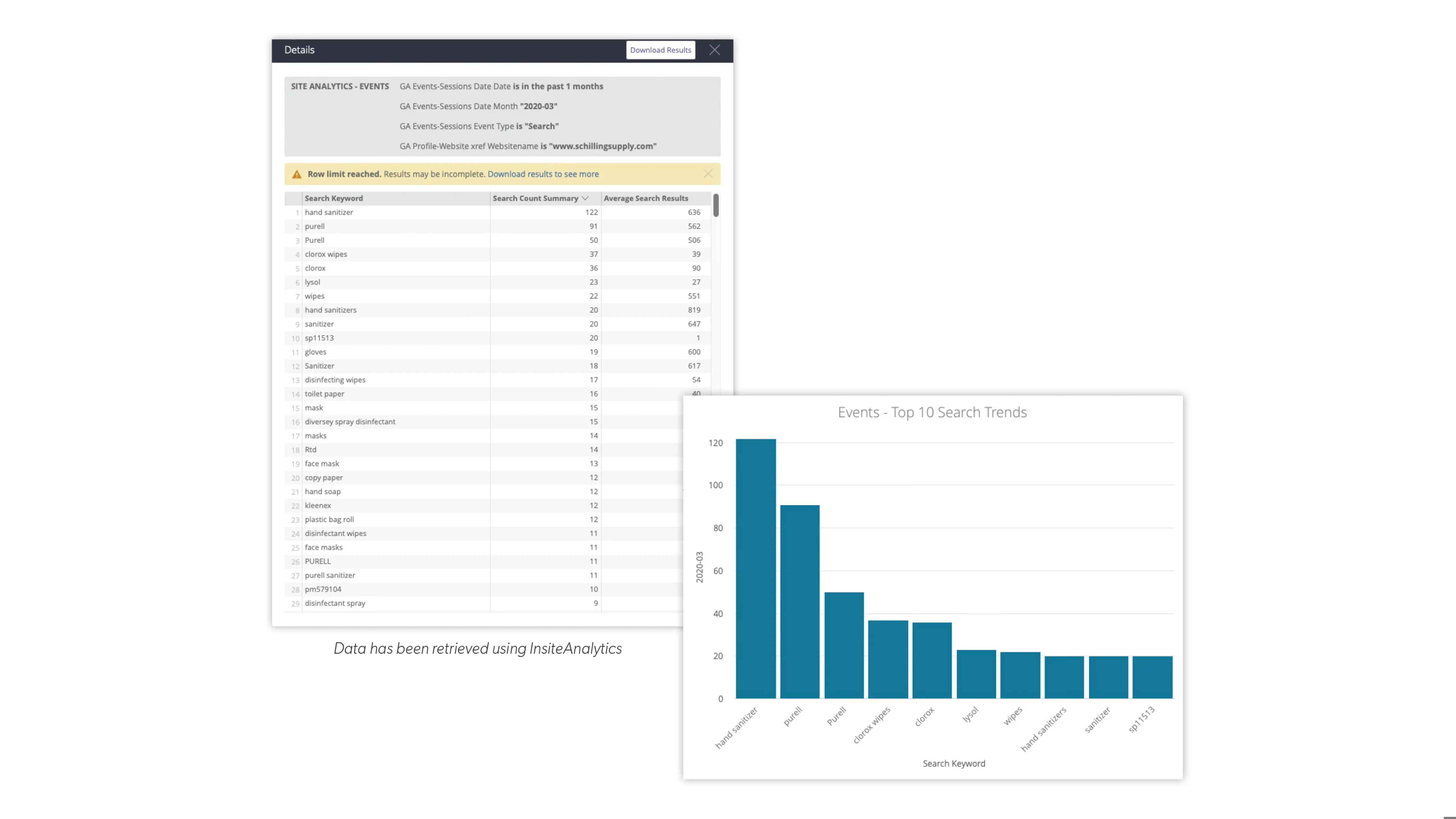
What companies stick out to you, Julian?
Julian: For me, it’s companies who have gone beyond the call of duty. Take for example Janome, a sewing machine manufacturer who operates their website on Episerver. They completely pivoted their manual operations to craft mask covers for critical workers in their community, New Jersey.
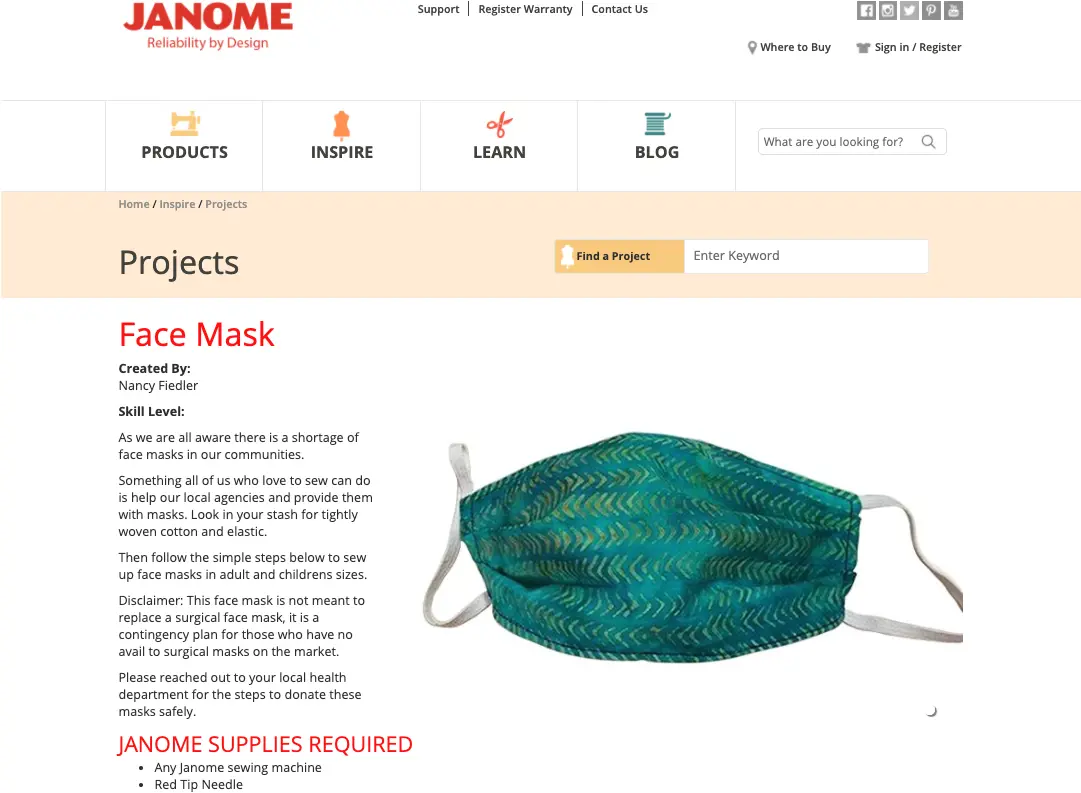
Musical instrument manufacturer, D’Addario is just as impressive, using drumskin materials to build protective mask equipment to front-line workers.
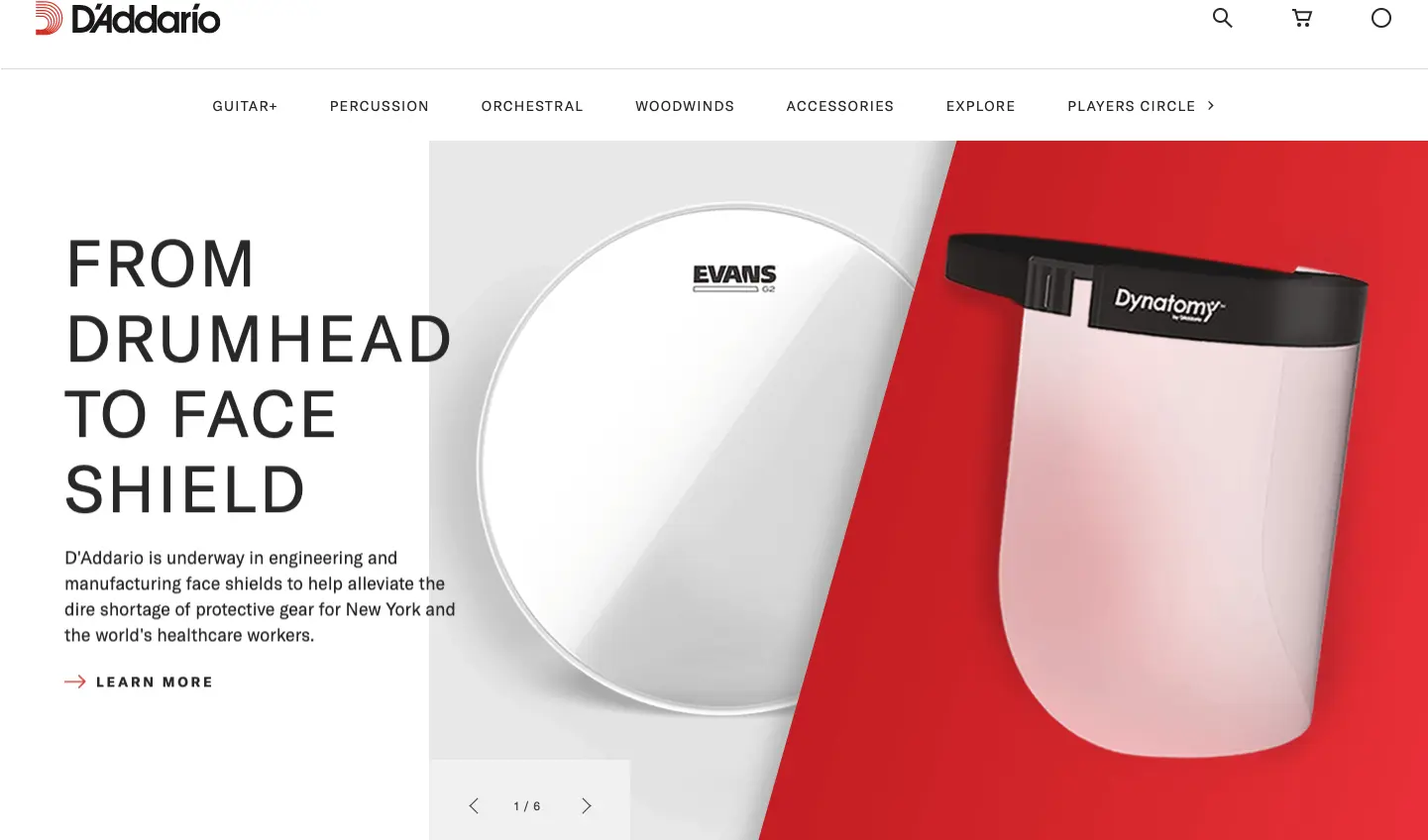
With complete lockdown, St John New Zealand, the largest provider of first aid training was forced to suspend all in-person training and had to quickly pivot to online delivery. Episerver digital experience platform proved a critical part of their ability to quickly launch new training courses, and is continuing to enable St John to drive revenue into their emergency ambulance services.
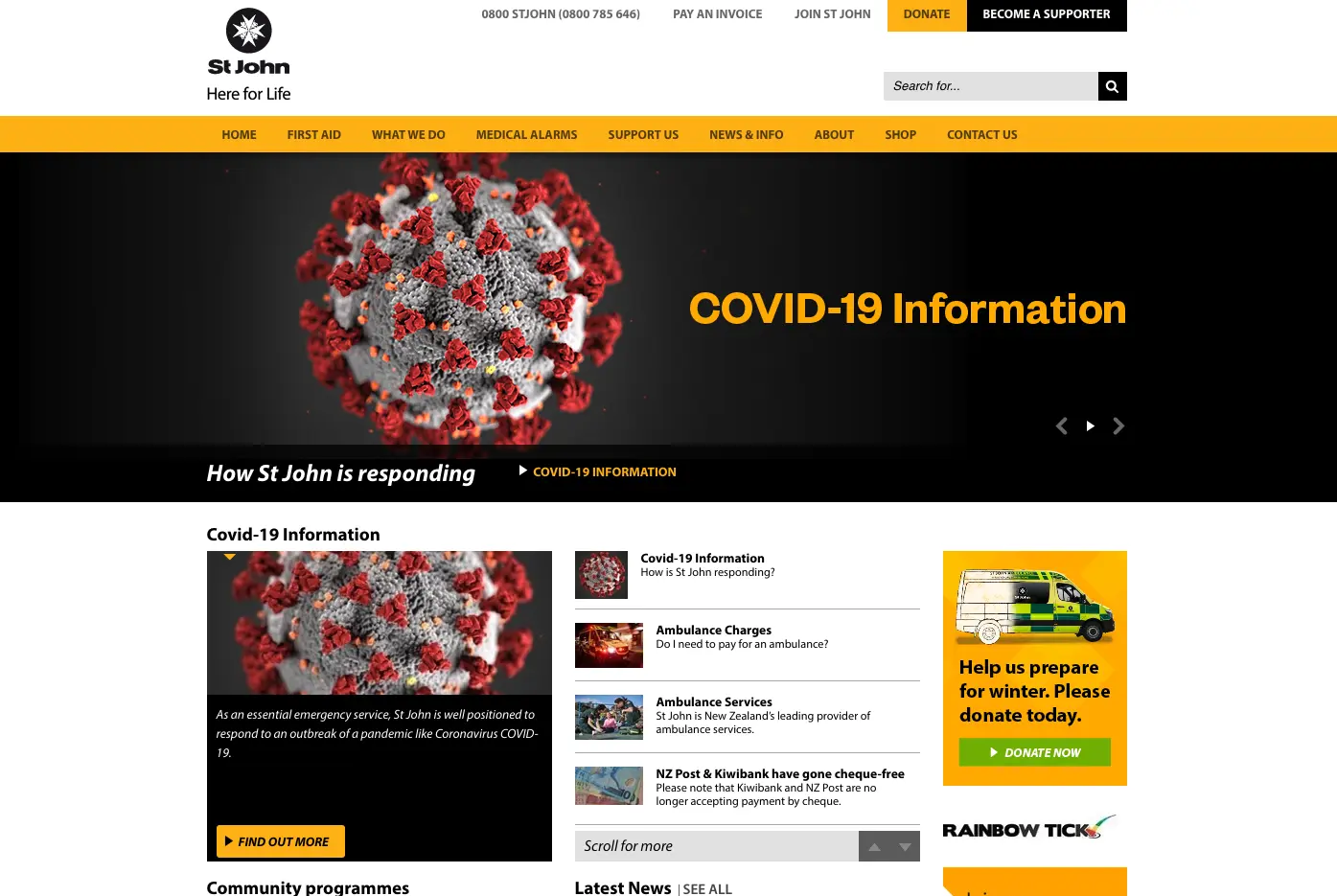
Morgan: Those are incredible examples of companies stepping up for the greater good. This has been a really interesting conversation. But what happens next? What lessons can we learn from how companies have adapted to this unique situation and what can we expect to happen moving forward?
Julian: Unpinning our customers' responses, we see that by delivering experience-driven, personalized online journeys today, they are more likely to succeed post-Covid. Online buying behavior is set to continue evolving and expectations will grow. Our recent B2B Digital Experience Report shows the majority (41 percent) of B2B leaders say selling directly to their customers online is the biggest opportunity in the next year - proving companies want to be more digitally agile in how they help their customers.
Morgan: I agree, Julian. Digital agility, content and personalization are more important than ever. As far as the manufacturing and distribution industries go, I have a few predictions. I think we’re going to see continued innovations in order fulfilment, buying preferences will keep shifting toward digital, B2B companies will re-evaluate technology investments, salespeople will rely on analytics and companies will prioritize their customers more than ever.
The good news is, tough times don’t last. We have a deep desire to help Episerver customers come back stonger after this is all over.
